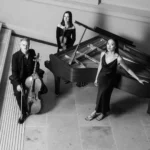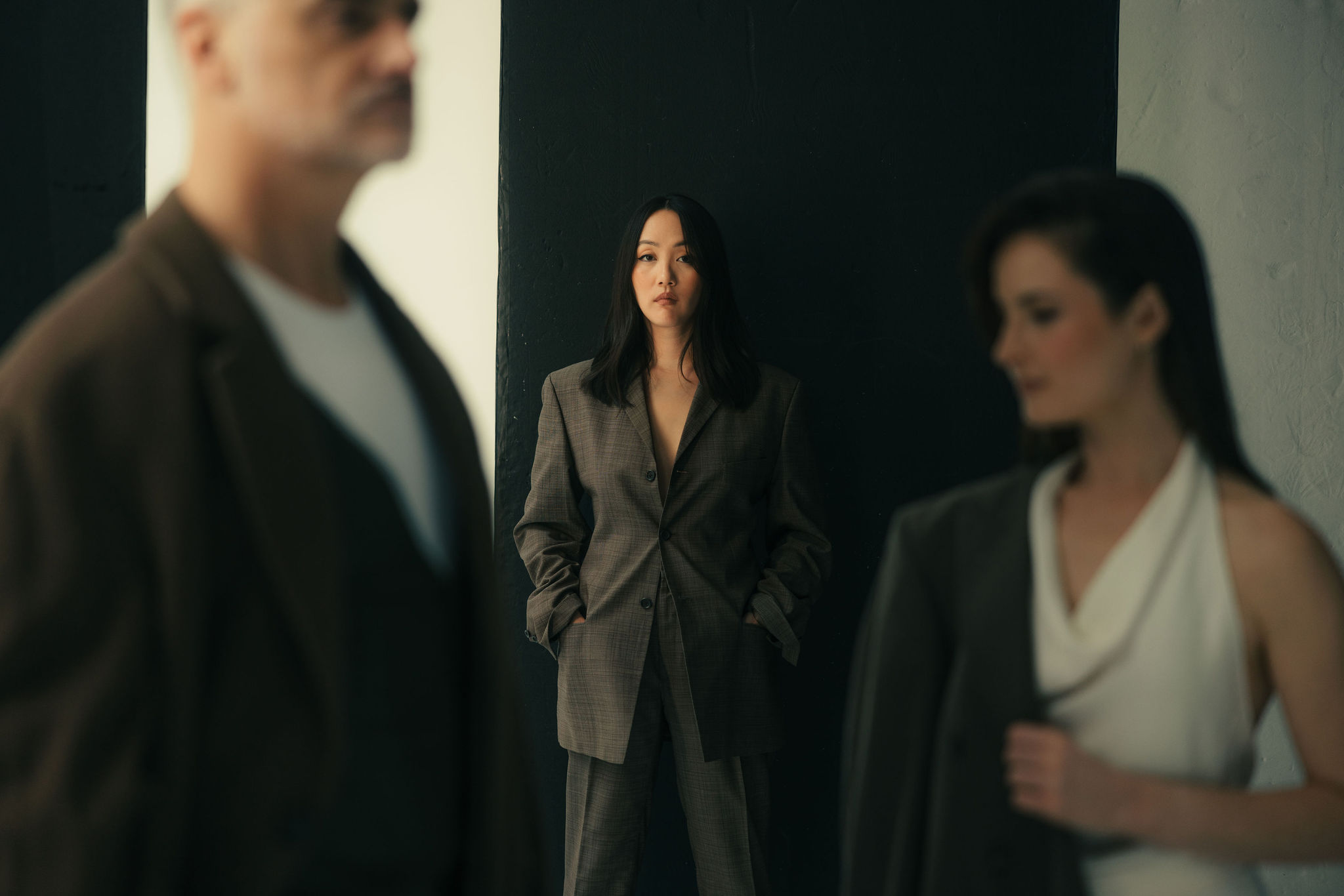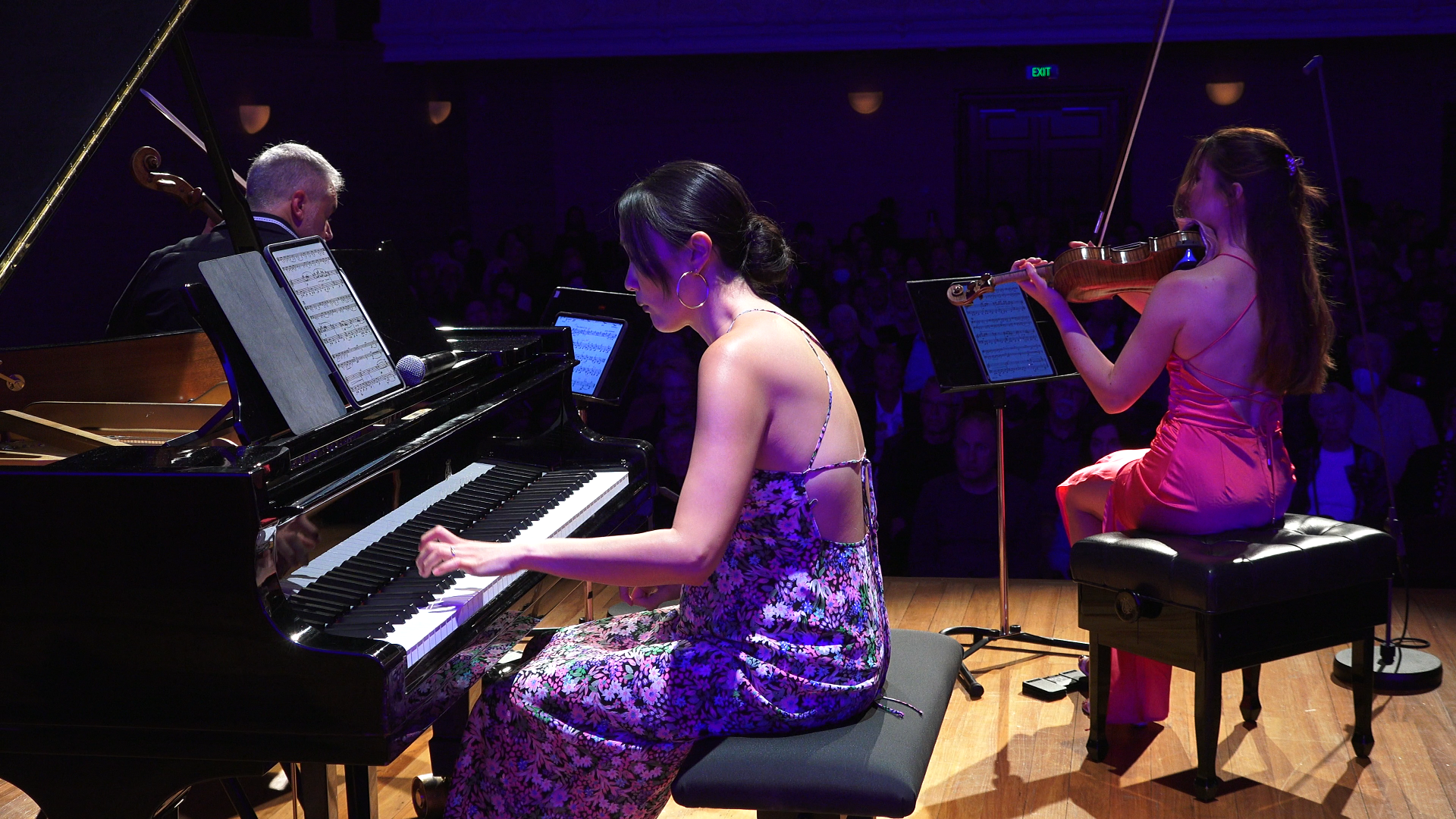Winners’ Concert
Sunday 8 October / 5pm
The University of Auckland School of Music Theatre
This is a free concert – koha appreciated ❤️
Donate here
Haere mai and welcome to the 2023 Winners’ Concert of NZTrio’s 5th biennial tertiary Composing Competition: Trip the Light Fantastic!
The brief this year was for applicants to create a new work inspired by this phrase and its connotations. Once again we have been heartened by the enthusiastic response by all levels of tertiary composing students and lecturers from up and down the country.
The overall standard and variety of voices within the 21 entries received was impressive, and the resulting works are truly explorative, evidencing each composer’s distinct musical language. Fourteen scores were selected to progress to the second stage, for which we held workshops in person at the University of Auckland, Victoria University of Wellington and the University of Canterbury. The works were presented and discussed, and feedback was offered, at which point the candidates had the opportunity to tweak and adjust their works before final submission. In collaboration with New Zealand composer Samuel Holloway,
we selected the six winning works that you will hear this evening.
For us, this competition is a way of having meaningful interaction with some amazingly talented students early in their careers and simultaneously offering Aotearoa’s best emerging composers invaluable exposure to a professional ensemble. As proud supporters of New Zealand music, we look forward to watching the careers of tonight’s winners (and indeed, all those who submitted works) truly blossom and flourish.
Amalia, Ashley & Somi
Guest composer: David Mason
In Search of a Voice
New work premiere, composed with the support of Creative New Zealand Toi Aotearoa.
Growing up in the 21st century alongside the internet and social media age is a fascinating experience but also an alienating one. I have had the opportunity to be exposed to such a wide variety of cultures and ideas. However, finding your own space in this vast ocean of styles, ideas and aesthetics can be as daunting as it is exciting. In Search of a Voice directly contributes to my personal journey in finding my place in the world. Specifically my journey in 2022 to reconnect with my Māori heritage. The work embodies many of the different influences I’ve encountered in my life whilst finding ways to subtly reference Māori musical styles including Taonga Puoro and Karanga.
Cameron Monteath
University of Otago
Wagnisfreude
In his 1645 poem L’Allegro, where the term trip the light fantastic was first coined, John Milton invokes the mythical figure Euphrosyne, goddess of joy, mirth and good cheer. Feelings of joy and excitement can show themselves in many different ways. Wagnisfreude (translated literally as ‘risk-joy’) ultimately seeks to explore the relationship between risk, joy, and personal growth, as well as the different types of risk we encounter — whether perilous and daring, or more personal and intimate. The outer sections of the work acknowledge the thrilling, potentially treacherous nature of risk-taking, while a slower, introspective middle section shows that joy can also reveal itself through personal risks and vulnerabilities. Meaning ‘to dance nimbly to music’ the term trip the light fantastic is further evoked through a swift waltz-like meter, which enables the element of good cheer to always act as an undercurrent to the more astringent dissonances.
Lucy Pollock
University of Otago
Pīpīwharauroa
I’ve always had an interest in birds, so I wanted to include some birdsong in this piece. I had recently found this painting by Don Binney of a Pīpīwharauroa (shining cuckoo) flying over Te Henga (Bethells Beach). The shining cuckoo centring the painting appears like a symbol of hope, so I decided to adapt the Pīpīwharauroa’s call into the violin part. The first instance of this motif is in bars 2-5. It then appears at different intervals throughout the piece, usually to signal the beginning of a new section to the piece. This usage matches its symbolism — in Māori culture the Pīpīwharauroa represents new beginnings, as explained by the following whakataukī (Māori proverb): “ka tangi te wharauroa, ko nga karere a Mahuru,” meaning “when the shining cuckoo cries it is the messenger of Spring.”
Sebastián Rodríguez Bonil
University of Auckland
Trio Op. 10 No. 1
This work was inspired by the phrase in two different ways: a literal and a metaphorical one. The literal inspiration resulted with a rhythmic transcription of the phrase in morse code, which is used near the beginning of the piece The complex rhythms that resulted from that transcription set the base of the rhythmic style used in the first section of the song. The metaphorical one was quite different. As a composer I imagined a trip through rays of light, as if I were inside a sci-fi movie or videogame. I immediately related that with the sound of Stravinsky’s Petrushka chord, and Villa-lobos’ O Polichinelo, which led to the choice of a politonality between the black and the white keys of the piano. Rhythmically speaking, however, it reminded me of the permanent speed feeling you can get from Adams’ A Short Ride in a Fast Machine.
Hanzhong Kang
University of Auckland
Drunk Light Dance 醉光舞 (Han-Yin Method)
The compositional method I employ is called the “HanYin Method,” which I self-created at the end of 2022. Han-Yin method is an interdisciplinary study of Microtones, Mandarin and Ancient Chinese Literature, combining 26 letters and 24 microtones. Based on this method, every letter matches its specific pitch. Following this method, the three characters “醉光舞” (Zuì Guāng Wuˇ) have formed with six pitches and a Buff note ( letter “Z” — Fermata). These six pitches have generated their own mode, harmony, and colours. This 10-minute piano trio is composed solely using these six pitches: C, C#, E, 3/4#F, #A, and B. It aims to utilize the surface form (Character) to reverse-engineer and uncover the profound essence (Poetry) through this musical “translation” method.
Nicholas Denton Protsack
Victoria University of Wellington
Keybell (Movement 1)
Inspiration is a fleeting and ephemeral thing. I have been fortunate enough to experience states of inspiration that have lasted for days or even weeks, and during these illuminating times everything seems to reveal in itself a hidden and sublime life, and the very world seems to buzz, with a deep and almost cosmic hum. Sometimes it’s as if a flash of fantastic light has struck my eyes, and what I see before me is a world different from the one I know. Sound, landscape, and emotion are all sides of the same coin in my mind, and the way I experience inspiration can be personified by all three: It is an otherworldly landscape of undulating hills and pulsing, celestial lights; of choruses of bells and a deep, glowing hum. It is the landscape I have attempted to capture and distill in my work Keybell (2023) for piano trio.
Bjorn Arntsen
University of Waikato
Pacific Notion
This composition emerges as a stream of consciousness that flows, is felt, punctuated, interrupted, shaped, and then crafted. It does not emerge from a verbal place, but from an idea of a certain time and place, namely the urban music of Aotearoa in the early part of this century, especially the sounds heard on “trips” to the clubs and arenas around the country, from electronica, dance, drum & bass to hip hop and trance. With the origin of the phrase attributed to John Milton, Pacific Notion takes several cues from Milton’s poem L’Allegro, as seen in the score; casting off gloom to embrace the delights of a glorious spring day and certainly the idea that “trip the light fantastic” is to dance nimbly or lightly to music…
Programme notes are the composers’ own words, abridged.
Ngā mihi nui! The 2023 NZTrio Composing Competition is generously supported by the Freemasons Foundation. We’re also hugely grateful to guest judge Samuel Holloway, and to all the music schools’ staff from the Universities of Auckland, Waikato, Wellington, Canterbury and Otago for their generosity of support, advice and enthusiasm, without which the competition would not have been this successful.




